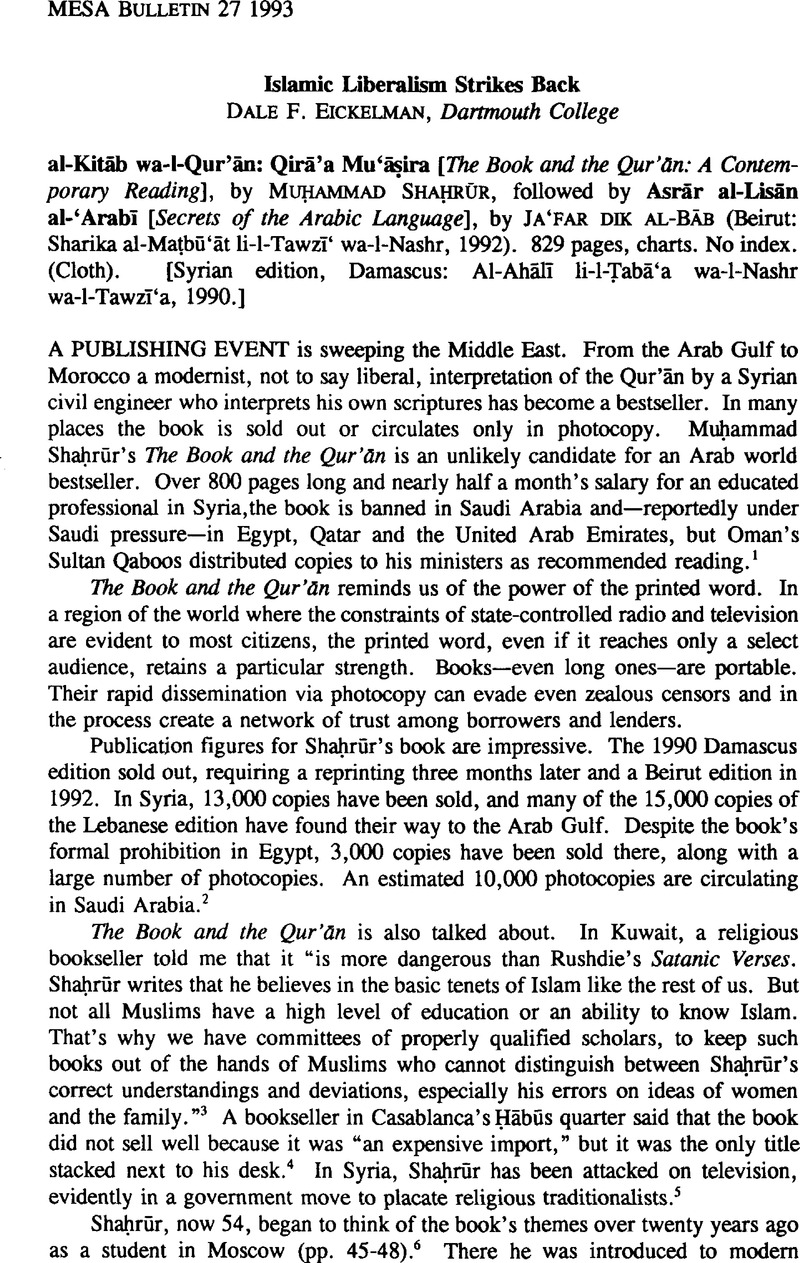Article contents
Islamic Liberalism Strikes Back
Published online by Cambridge University Press: 09 March 2016
Abstract

- Type
- Review Article
- Information
- Copyright
- Copyright © Middle East Studies Association of North America 1993
References
Notes
1 “Prophetic,” The Economist (London), June 5, 1993, p. 102.
2 Jansen, Michael, “Syria’s Islamic Reformer Outsells Mullahs,” The Irish Times (Dublin), August 13, 1993, p. 7.Google Scholar
3 Kuwait, Interview, June 13, 1993Google Scholar. This accusation dovetails with Shahrūr’s self-image that his book is a modern “reading” (qira’á) of the Qur’an, not another book on Islamic jurisprudence (fiqh).
4 The Casablanca price of the Syrian paperback edition was DH ISO ($15.65). Moroccan publishers claim that it is hard to sell a book in Arabic for more than DH 40.
5 Jansen, op. cit.
6 See also Jansen, op. cit.
7 Rahman, Fazlur, Islam and Modernity: Transformation of an Intellectual Tradition (Chicago and London: University of Chicago Press, 1982), p. 20Google Scholar; Izutsu, Toshihiko, God and Man in the Koran (Tokyo: Keio Institute of Cultural and Linguistic Studies, 1964).Google Scholar
8 Interview, Tangier, August 16, 1993.
9 Bucaille, Maurice, The Bible, the Qur’an and Science, trans. Pannell, Alastair D. and Bucaille, Maurice (Indianapolis: American Trust Publications, 1979).Google Scholar
10 Sa’īd Bensa’īd, “al-hiwar wa-l-fahm lā al-qat‘iyya wa-l-jahl’ [Dialogue and Understanding, Not Alienation and Ignorance], al-Sharq al-Awsa (London), July 7, 1993, p. 10.
11 Roy, Olivier, L’échec de I Islam politique (Paris: Éditions du Seuil, 1992).Google Scholar
12 For example, Gellner, Ernest, Postmodernism, Reason, and Religion (London and New York: Routledge, 1992), p. 4.CrossRefGoogle Scholar
13 See, however, Fischer, Michael M. J. and Abedi, Mehdi, Debating Muslims: Cultural Dialogues in Postmodernity and Tradition (Madison: University of Wisconsin Press, 1990).Google Scholar
- 4
- Cited by


